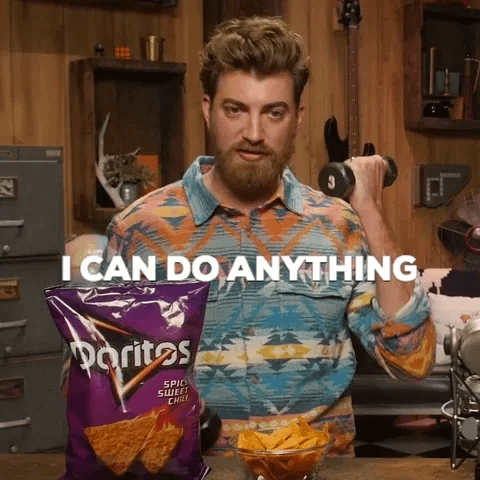The ceremony that led to sensational headlines the world over was still a day away when the first summer Olympic scandal was in the news.
The culprit was Canada. French Police arrested a member of the Canadian Women’s National Soccer Team staff for flying a drone in restricted airspace. The drone flew over a field where Canada’s first opponent, New Zealand, was practicing.
Canada was cheating.
The Canadian Olympic Committee was “shocked and disappointed”. An analyst and an assistant coach. The head coach decided she would watch the game from her hotel room.
Two days later, the head coach was suspended and, a day after that, FIFA, the sport’s world governing body docked Canada six points in the preliminary round at the Olympics, fined Canada Soccer, and banned the head coach, assistant coach, and analyst from soccer activities for one year. Canada Soccer launched an investigation.
The Canadian Olympic Committee and Canada Soccer appealed the decision to dock the team six points at the Olympics. The appeal was denied and some of the material that was revealed showed evidence of potential systemic cheating by the Canadian National Teams.
Canada. A country that prides itself on being a beacon of fairness and democracy. A country whose people are often caricatured as overly polite and nice was suddenly the Olympic villain.
How does this happen?
More importantly, how can it be avoided?
In the corporate world, leaders are often as revered as Gold Medal-winning athletes. They’re placed on pedestals and are adored and revered by their subordinates. People look up to them. If a business appears successful, people believe the leader can do no wrong.
Unfortunately, leaders sometimes start to believe that too.
People competing in the Olympics of Corporate Ladder Climbing want their place on the podium too.
If a confident leader suggests doing something wrong, the climbers fear losing their spot on the ladder if they speak up. They fear that instead of speaking up, “unscrupulous” colleagues will be sucking up to the leader.
Their fears may be well-founded.
Documents revealed in the Canada Soccer scandal, or #DroneGate, showed that an analyst had emailed the head coach of the Women’s National Team. The analyst asked the coach “to confirm that you will not be asking me to fulfil the role of 'spying' in the upcoming camp & future camps." The coach forwarded the mail asking for HR advice on what to do. The coach’s email even asked, “Do I need to find another solution in resourcing?” I.e., should I fire this analyst and find someone who will do what we tell them to do?
In Canada, the pointing fingers and the blame game have already started.
“Everyone else does it.”
“This has been going on forever.”
“The previous coaching staffs started it.”
It’s like listening to little kids in sandbox.
So, what’s the question leaders should ask themselves, but don’t?
It’s pretty simple really.
They should simply ask,
“Is this right?”
That doesn’t mean, “Is this the right thing to do so we can get a gold medal?”
It means “Is this the right thing to do?”
Period.
Legally. Morally. Ethically.
If that’s not enough, consider the consequences when doing the wrong thing is revealed.
Everyone likes to quote Warren Buffet:
“It takes twenty years to build a reputation and five minutes to ruin it.”
Quoting it is one thing, living by it is another.
To people who insist on playing games in the Olympics of Corporate Ladder climbing, I can tell you that if you are in a good organization, you need not fear speaking out.
When the company I worked for planned a major expansion into new and emerging markets, it seemed everyone around me was doing their best to clap and smile like a North Korean politician so our supreme leader would take notice and help them continue their climb.
I wrote a memo to senior leadership and asked a simple question.
“What if we’re the bad guys?”
The memo asked if we were “good guys” planning to help the emerging markets emerge, or if we were “bad guys” plotting to exploit the higher profit margins development in those countries would give.
The CEO was in my office at 0700 the next morning.
He stuck out his hand and said,
“Thank you. It’s a question we haven’t asked ourselves. We need to. We want to be the “good guys.”
Back when hitchhiking was common, my friend Brooke thumbed his way around the US. He was picked up by a man he called “Jeb the Bootlegger”.
Canada Soccer, and many others, need to learn Jeb’s life motto:
“You do not need permission to do the right thing. No one can give you permission to do the wrong thing.”
Stay safe, Always Care
Sources:
Drone Scandal Timeline - TSN.ca
Canada Soccer Appeal Denied - CTV News
FIFA Reveals Canada Soccer Emails - Sportsnet.ca
“Jeb the Bootlegger” story - Brooke Allen
Thanks for reading our newsletter! It means a lot to me. I’m grateful and hope you’ll consider hitting the “like” and “share” buttons or adding a comment if you enjoyed this article.
All of my stories are personal, authentic, and unashamedly enhanced by imperfect memory and literary creativity.
In addition to writing stories, I love to tell them.
As a multi-award-winning corporate leader in hospitality and global security, captivating keynotes, compelling coaching sessions, and edutaining, motivational workshops are all part of my repertoire.
Email me at paul@alwayscare.ca.
Thanks for being part of the Always Care Community!







It was the coaches who were at fault, not the team. FIFA overreacted by giving them the -6 penalty- which they have now erased...